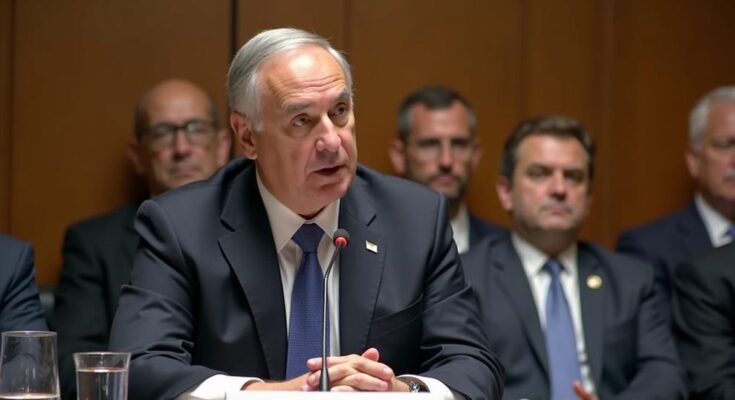The Indonesian Deputy Chair of the PKS has condemned Israel’s approval of new housing in the West Bank, attributing continued Israeli annexation to the lack of sanctions from the UN and the international community. He compares global reactions to Israel’s actions unfavorably against the sanctions imposed on Russia amid the Ukraine conflict, calling for Indonesia to adopt proactive diplomatic and strategic measures concerning Palestine.
The Israeli authorities have recently sanctioned the construction of an additional 4,427 housing units within the occupied West Bank, a move met with condemnation from Indonesian officials. Sukamta, a member of the Indonesian House of Representatives’ Commission I, emphasized that Israel’s ongoing annexation of Palestinian territories persists unabated due to the lack of enforced sanctions from both the United Nations and the broader international community. He remarked, “Israel’s crimes against Palestine continue as a result of the absence of strict sanctions from the United Nations and the international community… The difference in attitudes is clearly visible from the international sanctions against Russia. Ukraine, which is called a friend, continues to be supported, Russia as an occupier is given various strict sanctions.” Additionally, he voiced concerns over the hypocrisy inherent in global responses to international crises, noting that while the Israeli occupation of Palestinian land is enduring and significant, international attention and sanctions differ markedly when compared to the situation in Ukraine. The Deputy Chair of the PKS Faction urged the Indonesian government to adopt both short-term and long-term strategies in response to ongoing tensions in Palestine. He articulated that as a nation historically aligned against colonialism, Indonesia must aspire to a more proactive and leadership-driven role in international affairs, particularly regarding Palestine. “I encourage short-term steps for Indonesia to carry out diplomacy to pressure Israel and even encourage the United Nations to send peacekeepers to Palestine and impose strict sanctions on Israel,” he advised. He also advocated for the strengthening of Indonesia’s economic and technological capacities, aiming to ensure that developed nations regard Indonesia as a formidable participant in global dialogues.
The ongoing Israeli-Palestinian conflict has generated extensive international debate and critique, particularly concerning Israel’s settlement policies in the occupied territories. The recent approval for thousands of new homes in the West Bank reflects a broader pattern of territorial expansion by Israel, which many observers argue constitutes a violation of international law and a detriment to peace efforts. Additionally, comparisons drawn by various stakeholders between the global response to the Israeli occupation and the sanctions imposed on Russia for its actions in Ukraine highlight perceived disparities in international accountability and engagement.
In conclusion, the approval of new housing units by Israel in the occupied West Bank has sparked critical discussions regarding the adequacy of international responses to Israeli actions against Palestinians. Calls for Indonesia to adopt a stronger diplomatic stance and alleviate the double standards observed in international relations are imperative. As global dynamics continue to evolve, Indonesia is encouraged to step forward as a leader in advocating for Palestinian rights and implementing significant pressure against Israeli policies.
Original Source: fraksi.pks.id




